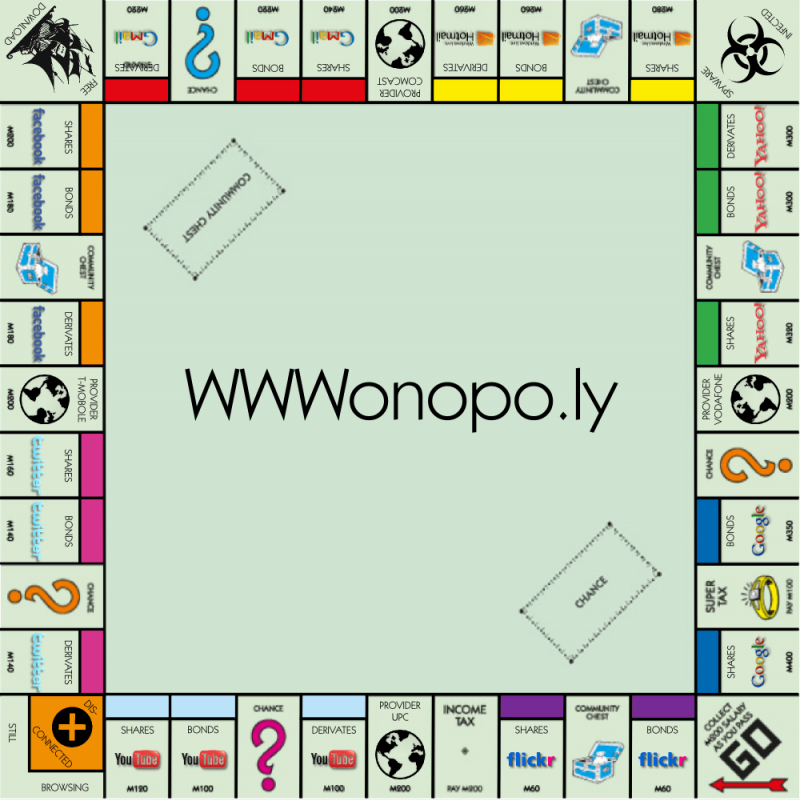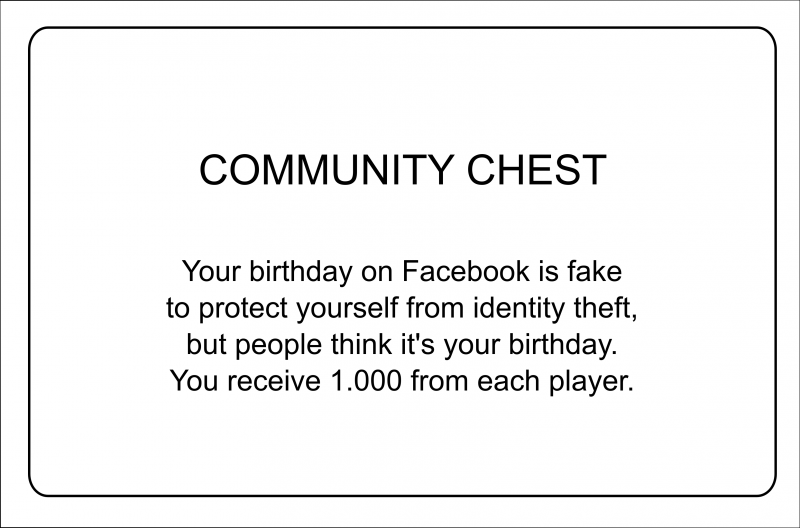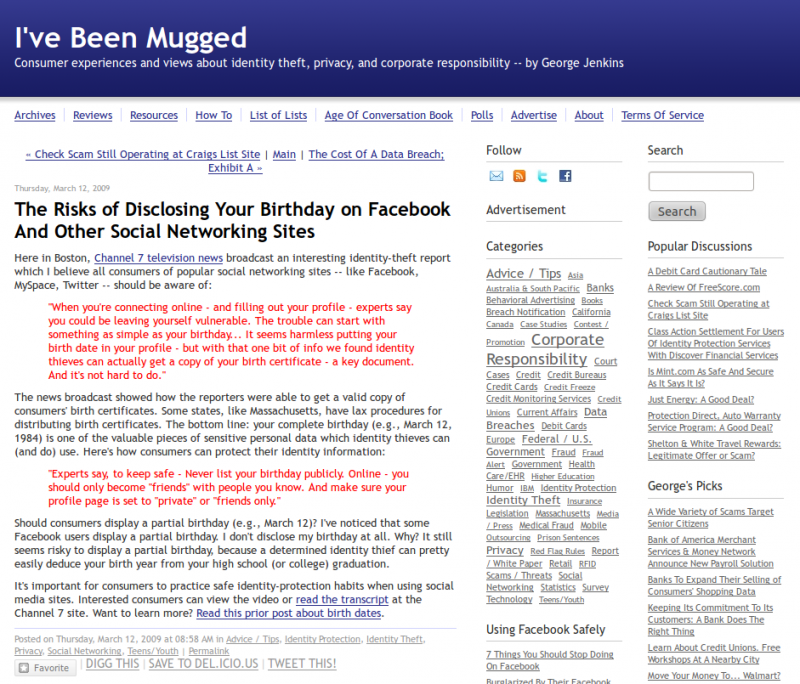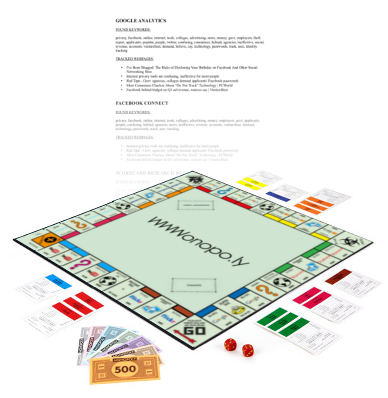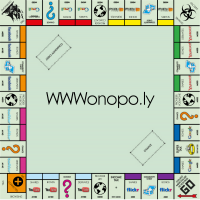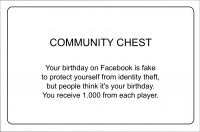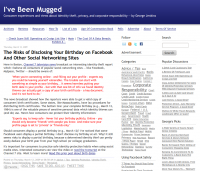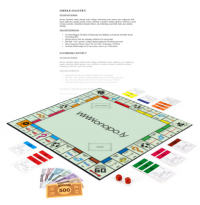User:Fako Berkers/Fako Berkers, WWWonopo.ly, 2012: Difference between revisions
Fako Berkers (talk | contribs) |
No edit summary |
||
| (15 intermediate revisions by one other user not shown) | |||
| Line 6: | Line 6: | ||
[[File:Board.png|800px|example of how the board may look]] | [[File:Board.png|800px|example of how the board may look]] | ||
The | The “chance” and “community chest” cards are RFID cards. When you draw such a card during play you'll have to scan it over the board. The screen that is setup next to the board will show two things, whenever a card gets scanned. Firstly the card itself, which tells a story about how social media are leaking data about their users and how users may be affected by this. | ||
[[File:Fakebirthday_card.png|800px|example of how a community chest card may look]] | [[File:Fakebirthday_card.png|800px|example of how a community chest card may look]] | ||
| Line 18: | Line 18: | ||
[[File:Report.png|400px|example of how a report may look]] | [[File:Report.png|400px|example of how a report may look]] | ||
By staying very close to the game of Monopoly everybody can engage with the work immediately. Funny anecdotes about how people loose their privacy online are included through the | By staying very close to the game of Monopoly everybody can engage with the work immediately. Funny anecdotes about how people loose their privacy online are included through the “chance” and “community chest” cards. At the same time the digital part of the game demonstrates how something as innocent as a visit to a news site, gets tracked and used to make a profit, possibly at the expanse of the visitor. | ||
People often enjoy social media, [http://www.guardian.co.uk/technology/2012/mar/03/internet-privacy | People often enjoy social media, [http://www.guardian.co.uk/technology/2012/mar/03/internet-privacy but they can't assess the risk tied to them very well]. WWWonopo.ly aims to make these risks visible and tangible, in a playful, funny and confronting manner. | ||
[[File:Wwwonopoly.png|400px|example of how the game may look]] | [[File:Wwwonopoly.png|400px|example of how the game may look]] | ||
| Line 27: | Line 27: | ||
=== Photos === | === Photos === | ||
[[File:Board.png|200px|example of how the board may look]] | |||
[[File:Fakebirthday_card.png|200px|example of how a community chest card may look]] | |||
[[File:Fakebirthday_website.png|200px|example of a news website]] | |||
[[File:Report.png|x300px|example of how a report may look]] | |||
[[File:Wwwonopoly.png|200px|example of how the game may look]] | |||
== Essay == | == Essay == | ||
Abstract | ===Abstract=== | ||
== | This thesis explores how people are being tracked online, why this may be a problem and why the user is not benefited by tracking in anyway. I also discuss how to prevent tracking from happening and what possibilities companies have to make money without tracking consumers. My project attached to this thesis is an attempt to make clear which risks and changes are involved concerning the huge amount of data that gets generated around our personas in a playful manner. | ||
===Bibliography=== | |||
No official notation yet, but to get an idea: | |||
* Free by Chris Anderson | |||
* The Long Tail by Chris Anderson | |||
* Many many websites (to be listed properly) | |||
* Reliable book sources on web beacons and tracking cookies would be good if they exist | |||
===Files=== | |||
*[http://pzwart3.wdka.hro.nl/django/fberkers/finalthesis/ The thesis is best enjoyed online.] | |||
* | *[[Media:PZITracking07.pdf|But if you really want a PDF ... I generated one from the website.]] | ||
== Additional Information == | |||
* | ===Budget indication=== | ||
* | * RFID chips+cards = 60 euro | ||
* American Monopoly game = 20 euro | |||
* Printing the board = ? | |||
* Printing the cards = ? | |||
* 3D printing "data storages"/"data centers" (or from plastic) = ? | |||
[[Category: Graduation Projects]] | [[Category: Graduation Projects]] | ||
[[Category: 2011/2012]] | |||
Latest revision as of 14:29, 24 September 2012
WWWonopo.ly
Description
I'll create a game that people will immediately recognize as a variant upon Monopoly. However the streets don't represent streets in Atlantis City or any other city in the world. Instead they portray internet platforms like Facebook, Hotmail, Youtube and Twitter. When you buy part of a set you actually buy shares, bonds or derivates from these web services and although you can't buy houses or hotels you're able to buy “data storages” and “data centers”.
The “chance” and “community chest” cards are RFID cards. When you draw such a card during play you'll have to scan it over the board. The screen that is setup next to the board will show two things, whenever a card gets scanned. Firstly the card itself, which tells a story about how social media are leaking data about their users and how users may be affected by this.
Secondly the online newspage on which the story of the card is based.
By scanning a card the webpage of the newsitem gets accessed automatically. In turn this visit gets tracked automatically by companies like Google, Facebook and many others. A printer will print which companies have been “tracking the game”, which other newsitems were tracked during play and what kind of profile may have been generated from all visits combined.
By staying very close to the game of Monopoly everybody can engage with the work immediately. Funny anecdotes about how people loose their privacy online are included through the “chance” and “community chest” cards. At the same time the digital part of the game demonstrates how something as innocent as a visit to a news site, gets tracked and used to make a profit, possibly at the expanse of the visitor.
People often enjoy social media, but they can't assess the risk tied to them very well. WWWonopo.ly aims to make these risks visible and tangible, in a playful, funny and confronting manner.
Media
Photos
Essay
Abstract
This thesis explores how people are being tracked online, why this may be a problem and why the user is not benefited by tracking in anyway. I also discuss how to prevent tracking from happening and what possibilities companies have to make money without tracking consumers. My project attached to this thesis is an attempt to make clear which risks and changes are involved concerning the huge amount of data that gets generated around our personas in a playful manner.
Bibliography
No official notation yet, but to get an idea:
- Free by Chris Anderson
- The Long Tail by Chris Anderson
- Many many websites (to be listed properly)
- Reliable book sources on web beacons and tracking cookies would be good if they exist
Files
- The thesis is best enjoyed online.
- But if you really want a PDF ... I generated one from the website.
Additional Information
Budget indication
- RFID chips+cards = 60 euro
- American Monopoly game = 20 euro
- Printing the board = ?
- Printing the cards = ?
- 3D printing "data storages"/"data centers" (or from plastic) = ?

